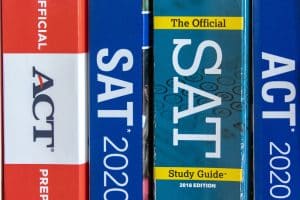What Are Harvard’s GPA and SAT Requirements?
Gaining admission to Harvard University is a challenging yet achievable goal. Known for its high academic expectations, Harvard sets specific GPA and SAT requirements for its applicants. These benchmarks are crucial for students to understand and strive for, as they play a significant role in the admission process.
Harvard GPA Requirements
Your high school GPA is a critical factor in your Harvard application. It serves as a key indicator of your academic abilities and readiness for college-level coursework.
Harvard looks for students who have demonstrated excellence throughout their high school years, and a high GPA is a strong testament to this. While a high GPA does not guarantee admission, it significantly enhances your application’s competitiveness.
Each of these factors helps Harvard understand your GPA in the context of your specific educational environment and experiences, allowing for a more nuanced evaluation of your academic potential:
- High School Curriculum: Harvard evaluates the complexity and breadth of the courses you have taken. Advanced classes like AP or IB courses can positively impact your GPA’s perception.
- Course Rigor: The level of difficulty of your courses is also considered. Harvard prefers applicants who challenge themselves with rigorous coursework rather than opting for easier classes to maintain a high GPA.
- Grading Scale: The grading scale of your high school is taken into account, as GPA standards can vary significantly between schools.
- Class Rank: Your rank in your graduating class provides context to your GPA, offering insight into your academic standing among peers.
Does Harvard have a minimum GPA requirement?
Harvard University does not set a specific minimum GPA requirement for admissions. This approach aligns with their holistic review process, which considers the entirety of your application, including personal essays, recommendations, extracurricular activities, and standardized test scores, in addition to academic achievements.
While there is no minimum GPA, though, knowing Harvard’s GPA statistics is crucial to understanding the competition and the caliber of students typically admitted.

Harvard average GPA
The average GPA of admitted students at Harvard is 4.2.
This is a weighted GPA, meaning it takes into account not only the grades you receive but also the difficulty of the courses you’ve taken. Weighted GPAs give additional value to more challenging courses, like Advanced Placement (AP) or International Baccalaureate (IB) classes.
The average GPA of 4.2 at Harvard highlights the high academic standards and the competitive nature of the student body. It reflects that the majority of admitted students have not only excelled in their classes but have also taken advanced, challenging coursework.
Nationally, this average GPA is considerably higher than the average high school GPA, indicating that Harvard students are typically at the top of their high school classes. This disparity underscores the exceptional academic performance expected by Harvard, setting a benchmark for aspiring applicants.
When considering Harvard’s GPA statistics, it’s essential to approach them with a balanced perspective. While it’s important to strive for a high GPA, remember that Harvard employs a holistic admissions process. This means that your GPA is just one component of your application.
GPA tips for Harvard
To position yourself competitively for admission to Harvard University, aim for an average GPA of 4.2 or higher.
Here are specific tips to help you meet and maintain Harvard’s GPA requirements:
- Enroll in honors, AP, IB, or advanced-level courses when available. These classes often come with a weighted GPA boost, which can help you achieve a higher average.
- Maintain a consistent level of academic excellence throughout high school. Admissions officers value students who demonstrate dedication and perseverance in their studies.
- Develop effective time management skills to balance your coursework with extracurricular activities and personal commitments. Consistently meeting deadlines and managing your time efficiently can help you maintain high grades.
- Don’t hesitate to seek help from teachers or tutors if you encounter challenging subjects. Addressing difficulties early can prevent a decline in your GPA.
- Use effective study techniques that work best for you. Experiment with different methods, such as flashcards, study groups, or time management apps, to find what helps you retain information most effectively.
- Engage actively in class discussions, ask questions, and seek a deeper understanding of the material. Active participation can contribute to a better understanding of the subjects and higher grades.
- Review and revise your notes and assignments regularly to reinforce your understanding of the material. Consistent review can lead to better retention and improved test performance.
- Set achievable academic goals for each semester or grading period. This can help you stay motivated and focused on maintaining high grades.
- High academic expectations can lead to stress. Develop healthy coping mechanisms to manage stress effectively, such as exercise, meditation, or talking to a counselor.
Can I get into Harvard with a low GPA?
While a high GPA is certainly an advantage in the Harvard admission process, it’s important to note that students with lower GPAs can still be competitive applicants.
Here’s how:
- Holistic Review: Harvard employs a holistic approach to admissions, which means they consider various aspects of your application, not just your GPA. If your GPA is lower than the average, you can compensate by excelling in other areas of your application.
- Standardized Tests: Strong performance on standardized tests like the SAT or ACT can offset a lower GPA. Focus on preparing thoroughly for these tests and aim for scores that are above the Harvard average.
- Extracurricular Activities: Active involvement in extracurricular activities can make you a more compelling candidate. Show your commitment and leadership through clubs, sports, community service, or any other pursuits that interest you.
- Personal Essay: Use your personal essay as an opportunity to explain any challenges you faced that might have impacted your GPA. Share your personal growth, determination, and the lessons learned from these experiences.
- Letters of Recommendation: Obtain strong letters of recommendation from teachers, mentors, or individuals who can attest to your character, work ethic, and potential.
In summary, while a low GPA can present challenges, it does not necessarily disqualify you from Harvard. Your application should be a well-rounded representation of your abilities, passions, and character. By excelling in other areas and addressing any weaknesses in a thoughtful and compelling manner, you can still be a competitive applicant for Harvard University.
Harvard SAT Requirements
Your SAT score carries significant importance in your Harvard University application. It serves as an indicator of your academic competence and readiness to thrive in a rigorous academic environment.
Admissions officers at Harvard utilize SAT scores to compare applicants from various schools and regions, providing a standardized metric for assessing academic preparedness. Achieving a high SAT score can offer you a competitive advantage during the admissions process.
However, it is essential to recognize that while a strong SAT score is valuable, it is just one element of your holistic application evaluation. Harvard considers your entire profile, including your GPA, extracurricular involvements, letters of recommendation, and personal essay, to gain a comprehensive understanding of your potential as a Harvard student.
Does Harvard have a minimum SAT requirement?
Harvard University does not have a specific minimum SAT requirement for applicants. However, understanding the SAT statistics of admitted students is crucial to grasp the competitiveness and the caliber of students typically accepted by Harvard.
Harvard average SAT
For Harvard, the typical SAT scores are as follows:
| Average SAT Score | 25th Percentile SAT Score | 75th Percentile SAT Score |
| 1520 | 1460 | 1580 |
These scores provide insight into the range of SAT scores of admitted students. Successful Harvard applicants score very well on the SAT, showcasing their strong academic abilities.
Moreover, these figures are considerably higher than national averages, emphasizing the academic rigor and selectivity of the institution.
In your Harvard application, these SAT scores specifically mean:
- Achieving the average SAT score of 1520 is a significant accomplishment and suggests that you possess strong academic capabilities. It reflects your readiness to excel in Harvard’s challenging academic environment.
- If your SAT score falls at the 25th percentile (1460), it may be lower than some of your peers, but it’s not necessarily a disqualifying factor. In this case, a lower SAT score should be accompanied by exceptional achievements in extracurricular activities, a top-tier GPA, outstanding letters of recommendation, and a personal essay that showcases your unique qualities and aspirations can compensate for a lower SAT score.
- Scoring at the 75th percentile (1580) indicates exceptional academic prowess and is undoubtedly a strong asset in your application. It showcases your ability to excel in standardized testing and indicates your readiness for the rigor of Harvard’s programs.
In essence, while your SAT scores are an important component of your Harvard application, they are evaluated in conjunction with other elements.
SAT tips for Harvard
To position yourself competitively for Harvard University, aim for a target SAT score of 1580 or higher. Focus as well on achieving at least 800 in SAT Math and 780 in SAT Evidence-Based Reading and Writing.
Here are tips to help you prepare for and achieve your target SAT score:
- Establish a study schedule that allows you to consistently dedicate time to SAT preparation. Allocate specific hours for each SAT section, focusing on your weaker areas.
- Utilize official SAT study materials provided by the College Board, such as the Official SAT Study Guide. These materials offer authentic practice questions and tests.
- Take full-length practice tests under timed conditions to simulate the actual testing environment. Resources like College Board’s official SAT practice site offer free practice tests.
- After taking practice tests, thoroughly review your answers to understand your mistakes and areas for improvement. Identify patterns of errors to address specific weaknesses.
- Learn effective test-taking strategies, such as time management, educated guessing, and skipping and returning to challenging questions. These tactics can boost your efficiency during the exam.
- Consider enrolling in SAT prep courses or programs, either in-person or online. These courses provide structured guidance and access to experienced instructors.
- Collaborate with peers who are also preparing for the SAT. Group study sessions can provide valuable insights and motivation.
- Develop strategies to manage test anxiety, such as deep breathing exercises and positive visualization. Confidence can lead to better performance.
- Participate in mock exams or practice sessions provided by local test prep centers. These simulate the test environment and can help reduce anxiety on test day.
- Familiarize yourself with the SAT format, including recent changes or updates. Staying informed ensures that you are well-prepared for the test day experience.
Harvard testing policy
Harvard University has adopted a test-optional policy, which means that submitting SAT or ACT scores is not required as part of your application.
This policy reflects Harvard’s recognition of the various challenges and limitations that standardized testing can pose to applicants, particularly in light of the COVID-19 pandemic.
Here’s what the policy means for your application:
- If you believe that your standardized test scores enhance your application and accurately represent your academic abilities, you are welcome to submit them. However, if you face challenges in taking or submitting these tests, you are not disadvantaged by their absence.
- Harvard’s admissions process remains holistic. Even without standardized test scores, your application will be evaluated comprehensively. This approach allows Harvard to assess your potential and contributions from various angles.
- Without the pressure of standardized test scores, you can concentrate on highlighting other aspects of your application where you excel, such as your academic achievements, leadership in extracurricular activities, and the uniqueness of your personal story.
Should I submit my SAT scores to Harvard?
At Harvard University, 55% of enrollees have included their SAT scores as part of their application. This figure suggests that submitting your SAT scores can be a strategic decision if you believe that your scores accurately represent your academic capabilities and enhance your application.
While Harvard offers a test-optional policy, the high percentage of applicants who do submit their scores indicates that many successful candidates still find value in including them.
Ultimately, the decision to submit your SAT scores should be based on your individual circumstances and how you believe they contribute to your overall application. If your scores align with your academic achievements and bolster your candidacy, it may be advantageous to include them.
However, if you face challenges or limitations in taking or submitting standardized tests, you can rest assured that Harvard’s admissions process remains holistic, considering a range of factors beyond standardized testing.
Does Harvard superscore the SAT?
Harvard University does not superscore SAT scores for undergraduate applicants. Superscoring involves taking the highest section scores across multiple test dates and creating a new composite score.
Harvard’s policy differs from superscoring. Instead of calculating a superscore, they evaluate applications by noting the highest test scores achieved in each section across test dates.
This approach means that your application benefits from the highest scores you achieved in each section, whether from a single test date or multiple dates. It underscores the significance of striving for excellence in each section, as Harvard recognizes and values your strengths across the various components of these standardized tests.
Additionally, Harvard takes into account your educational background when reviewing your scores. This holistic approach ensures that your performance is assessed within the context of your academic journey and experiences, further emphasizing the university’s commitment to a comprehensive evaluation of applicants.
Can I get into Harvard with a low SAT score?
You can still be a competitive applicant for Harvard even with a lower SAT score. Harvard’s holistic admissions process means that while SAT scores are important, they are not the sole determinant of your admission.
If your SAT score isn’t as high as you’d like, you can compensate in other areas. Demonstrating exceptional talent, leadership, or achievement in other domains can greatly enhance your application. Harvard is looking for well-rounded individuals who can contribute uniquely to their community, not just students with high test scores.
The significance of other parts of your application cannot be overstated. Your personal essays, for instance, provide a platform for you to showcase your personality, experiences, and the qualities that make you stand out.
Letters of recommendation offer insight into your character and potential from the perspective of those who have worked closely with you.
Moreover, your involvement in extracurricular activities, community service, and leadership roles illustrate your passions and commitment outside the classroom. These elements of your application allow Harvard to see the full spectrum of your capabilities and potential contributions to the university.
In essence, a lower SAT score can be balanced by strengths in other areas, painting a picture of a well-rounded, dynamic individual.
Can I get into Harvard without taking the SAT?
Harvard University demonstrates flexibility in considering applicants who may not have taken the SAT. This flexibility is particularly relevant in scenarios where access to testing has been limited or where students have chosen not to take standardized tests for various reasons.
While standardized test scores like the SAT have traditionally been a component of the admissions process, Harvard understands that they are just one way to demonstrate academic potential.
If you haven’t taken the SAT, there are several ways you can strengthen your Harvard application:
- Alternative Standardized Tests: Consider submitting scores from alternative standardized tests, such as the ACT. Harvard accepts these scores and views them as equivalent to the SAT.
- Academic Transcripts: Place greater emphasis on your academic transcripts. A strong GPA, especially in a rigorous curriculum, can demonstrate your academic abilities effectively.
- Recommendation Letters: Secure compelling recommendation letters from teachers, counselors, or mentors who can speak to your academic strengths, character, and potential.
- Essays and Interviews: Use your personal essays and interviews (if applicable) to articulate your intellectual curiosity, personal growth, and how you can contribute to the Harvard community.
- Extracurricular Activities: Showcase your involvement in extracurricular activities, leadership roles, community service, or other areas where you have excelled or made significant contributions.
- Special Talents or Achievements: Highlight any special talents, unique experiences, or significant achievements that set you apart and demonstrate your potential for success and contribution at Harvard.
By focusing on these aspects of your application, you can present a compelling case to Harvard admissions, even without SAT scores. Harvard values diverse perspectives and holistic achievements, and the absence of SAT scores does not preclude the possibility of a successful application.
Harvard Admission Process
Harvard University’s admission process is comprehensive and holistic, designed to evaluate applicants on multiple levels. The university evaluates you not just on your academic achievements but also on your personal qualities and potential contributions to the Harvard community.
Your GPA and SAT scores are pivotal in the Harvard admission process. These components showcase your academic strengths and are often the first aspects reviewed.
A high GPA demonstrates your ability to excel consistently in your studies over the years, while a strong SAT score reflects your preparedness for the rigorous academic environment at Harvard.
However, remember that these scores are just one part of your application. Harvard’s holistic review means that your extracurricular activities, personal essays, and recommendations also play a significant role in their decision-making process.
Your challenge is to present a well-rounded profile that highlights not only your intellectual capabilities but also your unique personality and potential to contribute to the campus community.
Harvard acceptance rate
The competition to gain admission into Harvard is exceptionally high. The acceptance rate stands at a mere 3.4%. This figure underscores the selectivity of Harvard and the level of competition applicants face.
In light of such intense competition, understanding Harvard’s admission requirements becomes crucial. Prospective students need to be aware of the academic benchmarks, including GPA and SAT scores, that Harvard considers during the admissions process.
Given the low acceptance rate, it is not enough to simply meet the requirements. You must find ways to stand out. This involves showcasing your unique talents, experiences, and a strong personal character, in addition to academic prowess. Understanding and exceeding Harvard’s expectations is key to improving your chances of admission.
Conclusion
A high GPA and strong SAT score can certainly bolster your application. They showcase your academic abilities and readiness for the rigorous academic environment at Harvard. These quantitative measures provide Harvard with a baseline to assess your academic performance and potential.
However, it’s crucial to remember the significance of a holistic approach to your application. Harvard’s admissions process is designed to evaluate you as a whole person, not just as a set of numbers.
Your personal essays, recommendation letters, extracurricular activities, leadership roles, and unique talents are equally important. These components of your application offer you the opportunity to highlight your individuality, character, and the diverse experiences you can bring to Harvard’s vibrant community.
We can help you get into Harvard
If you’re aiming for admission to Harvard and need guidance on how to make your application stand out, consider consulting with AdmissionSight.
Our expertise in the college admissions process can provide you with personalized advice and strategies to enhance your application. Whether you need help in highlighting your unique strengths, navigating the application process, or understanding how to present a well-rounded profile, we are here to assist you.
Take the first step towards your Harvard dream and contact us today for your free consultation.











































